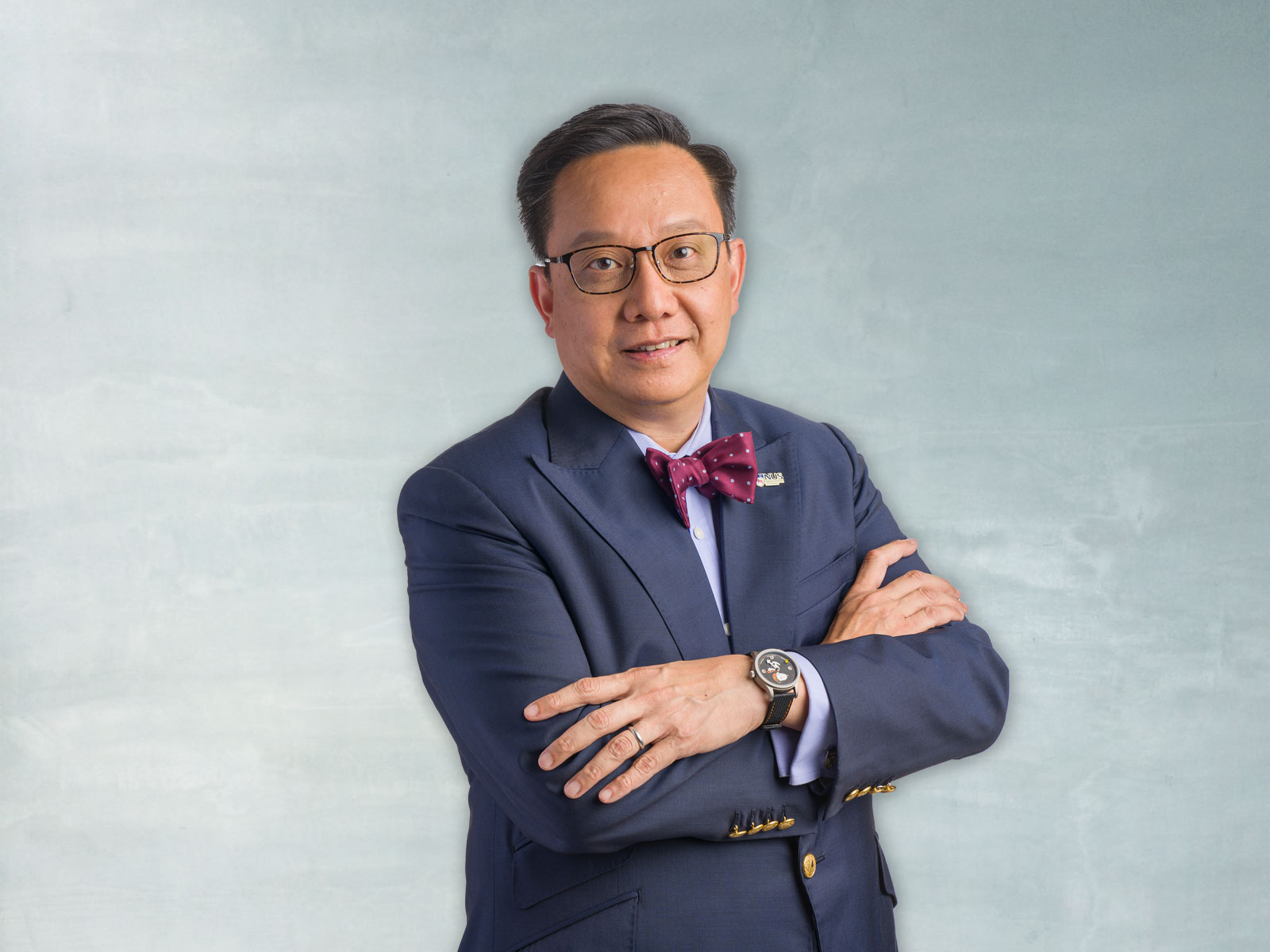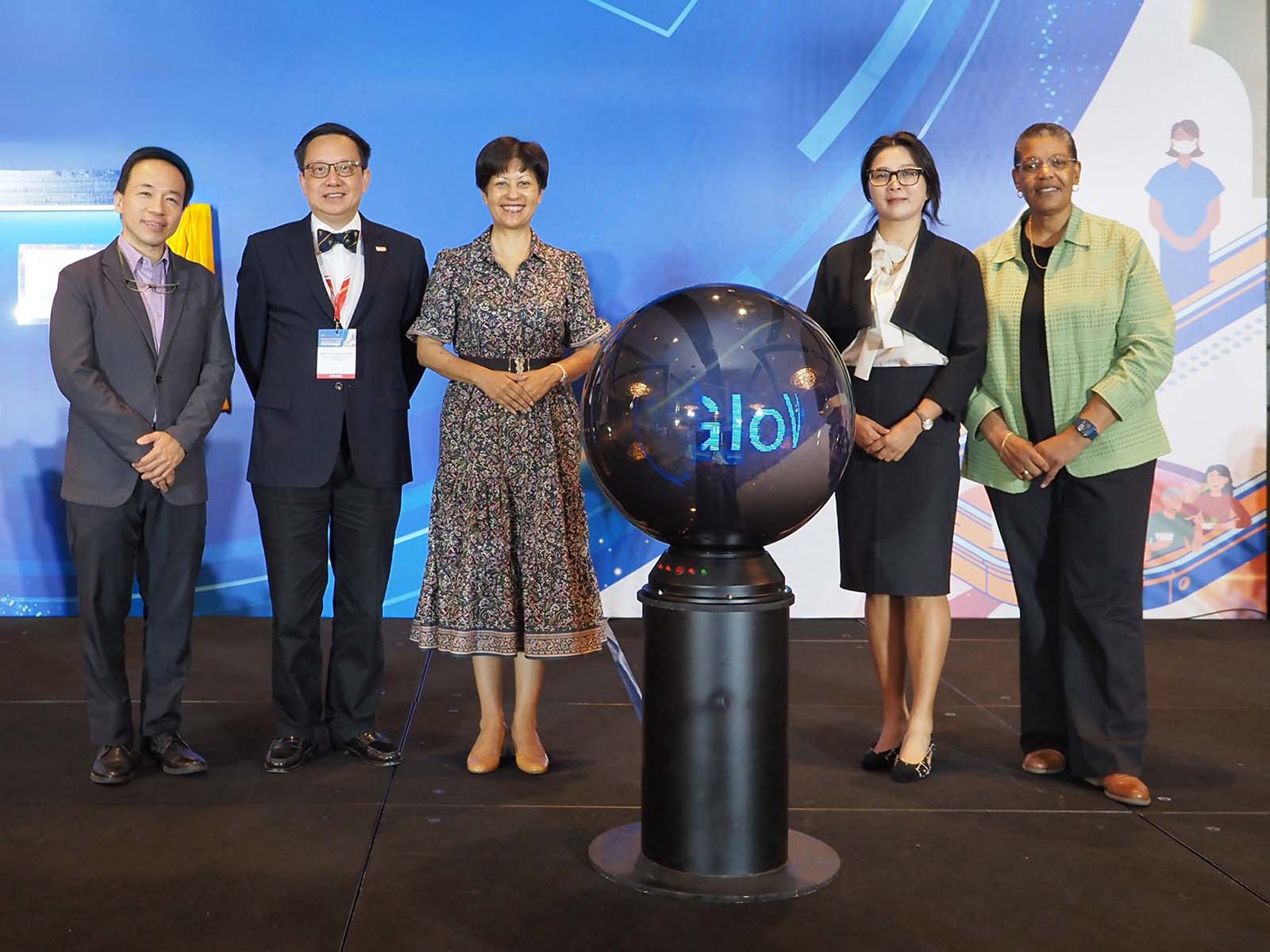
Dean’s Message
Feb 2024
DEAN’S MESSAGE

As 2024 unfolds, I would like to provide a quick review of the progress made by our School. Even as we equip our students with the knowledge, skills, and mindset to become competent and compassionate doctors and nurses, we are cognisant of the need to prepare them for the healthcare challenges of the future as the Singaporean population ages.
We launched the new Common Curriculum for Healthcare Professional Education to align with the government’s ‘Healthier SG’ initiative. Comprising five courses and an immersive Longitudinal Patient Experience (LPE), the new Common Curriculum for Healthcare Professional Education is designed to focus on preventive healthcare and facilitate ageing in place using technology and analytics.
Our research programmes are making good, steady progress. Singapore is perfectly placed to lead the understanding of Asian Health and Disease, given the ethnic makeup of our population. By delving deeper and getting a better understanding of how biology, natural history, lifestyles, and genetic susceptibility affect therapeutic responses to diseases in Singapore, such as cardiovascular-metabolic diseases, we can potentially reverse disease trajectories not just in Singapore but Asia. In my last message, I mentioned Project RESET, led by Professor Roger Foo and his team at the Cardiovascular-Metabolic Disease Translational Research Programme. RESET is the first of many NUS Medicine projects that can be game-changers for advancing understanding of Asian patterns of diseases and health.
Even as we equip our students with the knowledge, skills, and mindset to become competent and compassionate doctors and nurses, we are cognisant of the need to prepare them for the healthcare challenges of the future as the Singaporean population ages.”
Second, with Singapore being one of the fastest ageing populations in the world with steadily rising life expectancy, one of the demands of the healthcare sector will be to enable healthier ageing of the population. While Singapore’s life expectancy is 83 years, our healthy life expectancy is 73 years. This means that Singaporeans can expect to spend 10 years in ill health. This is why one of the ambitious research efforts here at NUS Medicine aims to increase the Healthy Life Expectancy or Healthspan of Singaporeans by five years by 2050.
Our scientists are looking into refining current diagnostics and biomarkers to better risk stratify individuals and the Healthy Longevity Translational Research Programme is focused on creating a steady flow of research into geroscience that includes preclinical translational approaches to slow or reverse effects of ageing and holding trials to test the efficacy of healthy longevity promoting interventions.
This requires our scientists to work closely with clinicians in our health system and offer us ways to understand why our patients and the population behave the way we do and what might ‘nudge’ them to change; what organisational support we need to improve our practices; and what incentives we ourselves will respond best to. At NUS Medicine, we are blessed to have behavioural and social scientists, health economists and people who understand organisational behaviours with us at the Centre for Behavioural and Implementation Science Interventions, to help fast-track the translation of clinical research and evidence into practice, routinise evidence-based practice in healthcare delivery, and embed these practices into our health system.
I end this quick review of our work with more encouraging news: in the Times Higher Education rankings of medical schools for 2024, NUS Medicine has risen from being ranked #3 in Asia (2023) to #2 in Asia (2024).
This year, we are tied with the Karolinska Institute of Sweden for 16th place among medical schools in the world. The Karolinska is a very distinguished university dedicated to Medicine established in 1810, before Singapore was even founded by Sir Stamford Raffles.
We are gratified and appreciative that the hard and good work of our colleagues and students has enabled the Yong Loo Lin School of Medicine to be ranked among the best medical schools in the world.




